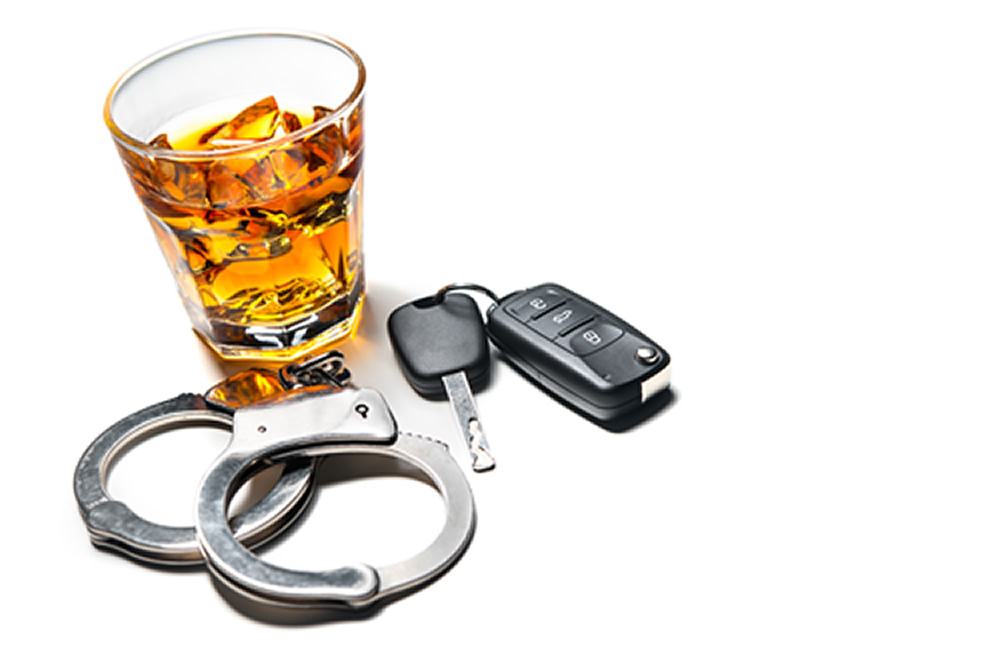Most alcohol related driving offenses begin when a police officer observes some type of vehicle and traffic violation, such as erratic driving, crossing the center line, speeding, broken taillight, improper license plate, no turning signal, and so forth. Upon stopping the motorist the officer will approach the vehicle and ask for a license and registration. During this time, the officer is trained to make observations regarding the motorist’s physical appearance and mental acuity. The officer will typically look for glassy/blood shot eyes, slurred speech, and the smell of an alcoholic beverage as indicators that a motorist has been drinking.
If the officer suspects a motorist to be under the influence of drugs or alcohol, he or she will request the motorist to conduct a few field sobriety tests. The standard tests are the horizontal gaze nystagmus test, the walk-and-turn test, the one-leg stand test, the Romberg test, the finger-to-nose test, and the alphabet test. It is in the officers discretion which tests he or she wishes to use, however the most commonly implemented tests are the horizontal gaze nystagmus, the walk-and-turn, the one-leg stand, and the alphabet test.
Police officer’s are trained in the proper administration of these tests, including what clues to assess performance, and what criteria are to be employed to interpret that performance. These test are subjective in nature. An officer can find a variety of reasons for failing an individual on any one of these tests. For example, the walk and turn test requires an individual to take nine heel to toe steps down a straight line, turn around, and take nine heel to toe steps back, with arms at your side, and counting aloud. An officer can fail an individual for starting before the instructions for the test are finished, stopping to steady oneself, not touching heel to toe, stepping off the line, using arms to balance, not turning correctly, or an incorrect number of steps.
If an officer determines that an individual is impaired or intoxicated based on the performance of these tests, he or she will typically ask the driver to blow into an alcohol sensor breath-screening test. This test is used to determine the presence of alcohol and is not the certified breath test that determines an individual’s BAC. In fact, the results of this test are not admissible in a court of law. Once, the officer determines that an individual is impaired or intoxicated, either through field sobriety tests, the alcohol sensor or typically both, the officer will place that individual under arrest for driving while intoxicated.
Next, the individual will be taken back to the local police station or trooper barracks, depending on the police agency. It is here that a request to submit to a blood alcohol test will be made. The officer will read the individual both Miranda and refusal warnings. Pursuant to Vehicle and Traffic Law Section 1194(2) a driver is deemed to have given consent to a chemical test for the purpose of determining intoxication. However, you can choose to refuse this test.
Many people ask whether or not they should submit to a blood alcohol test. There is not a “yes” or “no” simple answer to this question. The determination of whether or not to take the test is based upon many factors including consideration of how much alcohol you have consumed, any previous driving while intoxicated offenses, and the driving penalties that will be imposed as a result of the refusal.
After the arrest and testing procedure, the defendants will be released on their own recognizance or bail will be set. If the defendant is not arraigned on the night of the incident, they will be given a court date to appear for that purpose. Either way, it is imperative that you contact an attorney prior to your next court appearance or if you are financially eligible, the Court may appoint one for you.
It is important to note that each DWI case is unique and presents distinctive issues for both the prosecution and defense attorney to analyze in determining the strength of the case. Many issues affect plea bargaining and/or the trial of a DWI case, including the basis for the stop, performance of field sobriety tests, prior DWI offenses, cooperation with officers, or whether there was an accident. The complexity of these issues and the law surrounding them requires a competent and trained attorney to assist the charged motorist.
